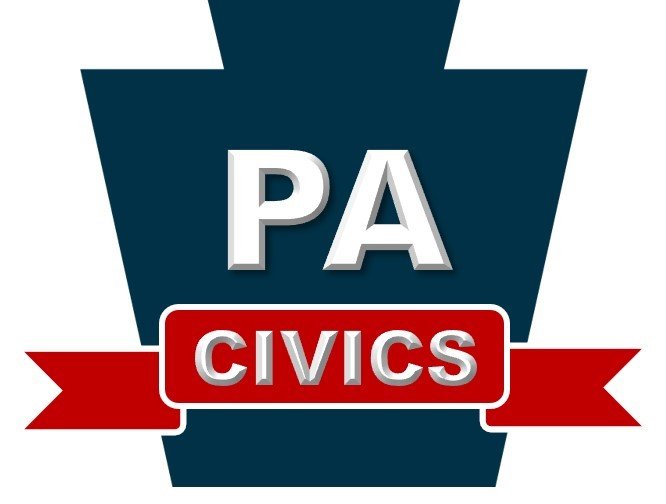Current Events and Civil Dialogue Pathway
This pathway is aligned to the “A People with Contemporary Debates & Possibilities” theme on the EAD Roadmap.
This theme explores the contemporary terrain of civic participation and civic agency, investigating how historical narratives shape current political arguments, how values and information shape policy arguments, and how the American people continues to renew or remake itself in pursuit of fulfillment of the promise of constitutional democracy.
Member Resources
-
Committee of Seventy
Can We Talk? is a research-driven, skills-based program that introduces students to habits that promote productive dialogue across difference, to counter polarization and division.
High School
-
The Rendell Center for Civics and Civic Engagement
Since it’s inception in 2013, the Citizenship Challenge has become a signature offering and is the premier experiential learning experience for 4th and 5th graders in the Commonwealth.
The challenge is an essay contest providing students with the opportunity to express themselves regarding a current issue facing our democracy.
4th and 5th Grades
-
National Constitution Center
This detailed toolkit supports teachers seeking to bring civil dialogues about the Constitution into the classroom. The National Constitution Center’s unique approach to constitutional education emphasizes historic storytelling, constitutional rather than political questions, and the habits of civil dialogue and reflection.
-
National Constitution Center
Constitution in the Headlines is a collection of curated resources designed to help teachers and students contextualize constitutional topics in the news. Explore shortened, classroom-friendly versions of America’s Town Hall discussions, We the People podcasts, or Constitution Daily blog posts that include nonpartisan constitutional analysis from experts and scholars from across the ideological spectrum. Each media asset will come with engagement questions, student choice activities, and primary sources to deepen student engagement, build connections and critical thinking skills, as well as foster civil dialogue.
At the National Constitution Center, we value civil dialogue, which empowers students to speak about constitutional and historical topics in ways that remain civil, respectful, and reflective. As you prepare to discuss these topics in your classroom, we encourage you to establish norms such as:
Stay calm
Listen patiently
Listen actively
Don’t speak twice until everybody has spoken once
You can find more support for establishing norms and civil dialogue practices in our Civil Dialogue Toolkit.
-
Pennsylvania Bar Association
One of the largest in the nation, the PBA/YLD Mock Trial Competition gives over 290 high school student teams from across the state the opportunity to act as lawyers and witnesses in simulated civil trials before actual judges and panels of juries. Lawyers volunteer to assist students as team advisors, scorekeepers and regional coordinators. Each year, the winning team goes on to represent Pennsylvania in the national competition.
High School
-
The Perception Gap represents various misunderstandings and incorrect generalizations of those who generally identify with and/or tend to vote for another political party. Many researchers have found we are more similar across the political spectrum than often perceived. The Strengthening Democracy Challenge led by Stanford shows correcting aspects of this Perception Gap is more effective than nearly any other scalable intervention at reducing factors associated with risks of democratic breakdown. (Note that this document uses the term “Perception Gap,” coined by More in Common, an organization that has conducted substantial survey work in this space. However, one can substitute it for a more precise term like “partisan misperceptions” if preferred.)
This lesson can be used independently, with goals such as making more well-informed and less-polarized citizens who are also better able to discern if news reports about polarization in America are accurate. Separately, it is an excellent precursor or complement to civil discourse in the classroom. Civil discourse is enhanced when students have accurate views of what average Americans across the political spectrum think about various political topics. In the absence of lessons like this, students may have unnecessary anxiety about engaging in civil discourse, and/or overemphasize binary and fringe policy options.
High School, but modifiable to Middle School
-
Politicians, the media, and social media users face incentives to paint a divided picture of America, making us forget how united we really are.
Similarity Hub from AllSides and More Like US helps solve this problem by collecting public opinion data that corrects political misperceptions, highlights common ground, and helps people feel calmer and more united.
This is an excellent resource for grounding civic dialogue in class. It also is a strong tool for student journalists.
-
Committee of Seventy
The Studio C70 program allows your class to interview candidates running for office. C70 works with you to connect with candidates or public officials from all parties. Your students supply the questions.
All Grades
-
BRI’s Think The Vote program is an online debate platform that poses a bi-weekly current events question to students. Students who have the best answer on both sides of the issue are awarded prizes and entered to win the $1000 school year grand prize. Item description
Other Helpful Resources
-
Educating for American Democracy
The EAD Roadmap is accompanied by a curated resource library put together by EAD Content Curation Task Force. These lessons and resources align to the “Current Events and Civil Dialogue” pathway.
K-12
-
Civics Renewal Network
This collection from CRN has a handful of helpful resources to help students learn about controversial topics with an emphasis on incorporating critical thinking skills.
-
PvP researches and publishes nonpartisan and easy-to-understand policy content that educates students, informs policy makers, and engages the general public in understanding and intercepting policy issues.
Their policy briefs are a great resource for ensuring students understand the full depth of the most pressing policy issues of the day and the main political perspectives on how to address them.
